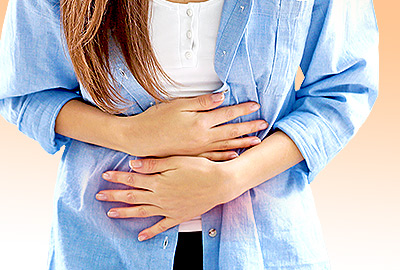At various stages and times in life, a woman's period is likely to become heavier and more irregular. Hormone levels tend to be in flux during menopause, which means many women have heavier periods than they are accustomed to during this transition.
Are My Periods Abnormally Heavy?
A heavy period, medically termed menorrhagia, is defined as more than 80 mL of blood loss in one period. Women usually have a period ranging from three to five days that produces between 10 - 35 mL of fluid. An average sanitary product can hold about 5 mL (one teaspoon) of fluid, and a maxi or super tampon holds about 10 mL.

It is also a good idea to record the days of your cycle or any breaks in the bleeding. Keeping track of how many tampons or pads you use can help a doctor identify the cause of heavy periods. Also, try keeping track of other symptoms, such as pain, menstrual spotting between periods, acne, fatigue, or irregular hair growth.
What Causes Heavy Menstrual Periods?
It is still uncertain what causes heavy menstrual periods, although heavy periods are most common in teens who are in their first years of menstruating and in women who are perimenopausal. The hormones estrogen and progesterone are responsible for regulating the growth and shedding of the lining of the uterus, so when these levels shift, irregularity in menstruation can result.
Heavy and constant menstrual bleeding can also stem from different types of infections, growths, or underlying disorders. For example, heavy periods can be a symptom of polycystic ovary syndrome (PCOS), fibroids, a thyroid problem, or endometriosis. If your periods are painful or you have other symptoms along with heavy periods, it is best to see a doctor who will be able to diagnose any underlying medical condition.
How to Manage Heavy and Constant Menstrual Periods

Heavy periods are a normal part of perimenopause and can also be worsened by stress, underlying medical conditions, or some lifestyle changes.
A heavier flow can be managed by taking ibuprofen, replenishing fluids, consuming an iron-rich diet, and taking progesterone if necessary. Iron is essential in making blood, and many women who experience heavy periods on a regular basis often become anemic due to iron loss. Iron-rich foods include dark leafy greens, beans, seafood, and lean meat. Click on the following link for further information on handling irregular periods.
Sources
- The Centre for Menstrual Cycle and Ovulation Research. (2015). Very heavy menstrual flow. Retrieved November 3, 2015, from http://www.cemcor.ubc.ca/resources/very-heavy-menstrual-flow
- University of Michigan News. (2014). Prolonged and heavy bleeding during menopause is common. Retrieved November 3, 2015, from http://www.ns.umich.edu/new/releases/22121-prolonged-and-heavy-bleeding-during-menopause-is-common


